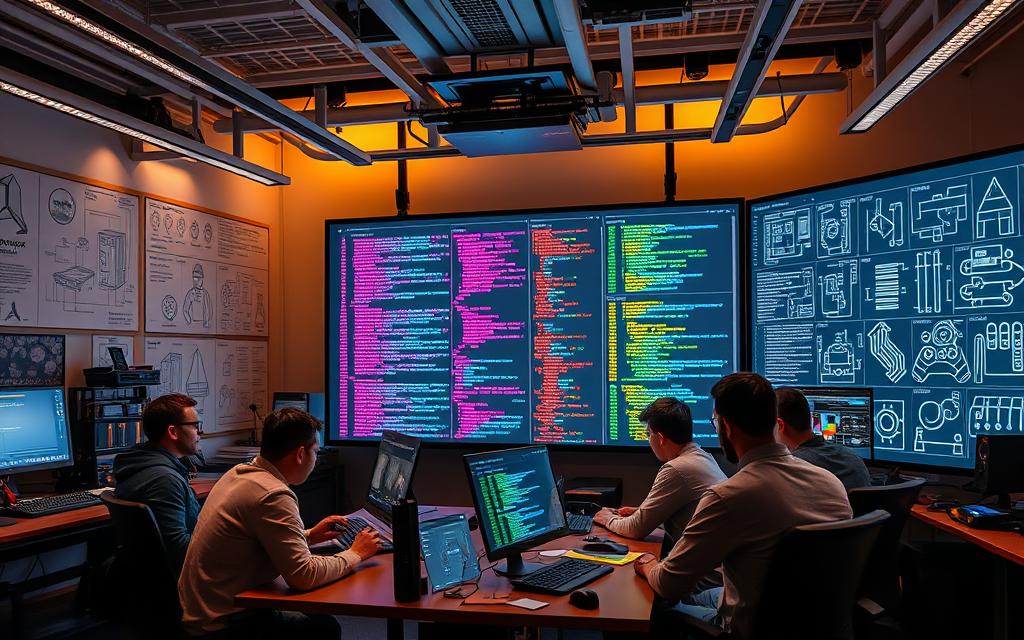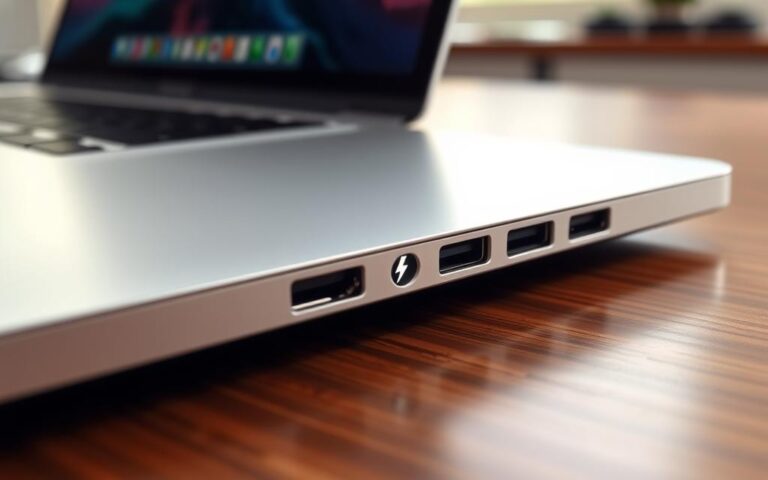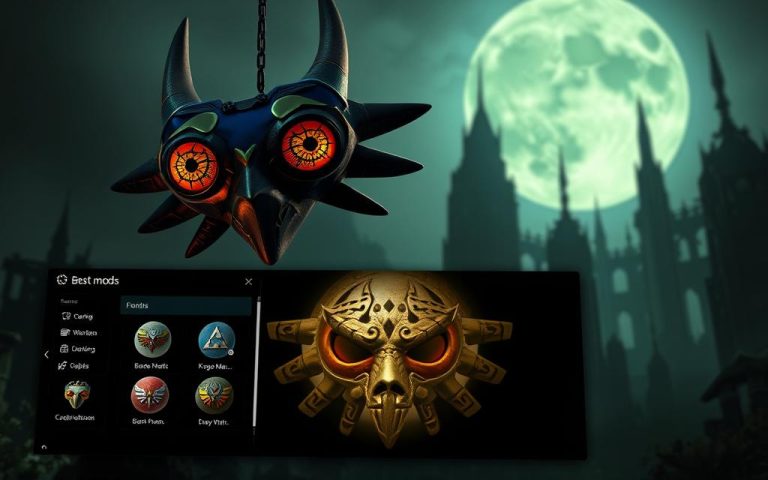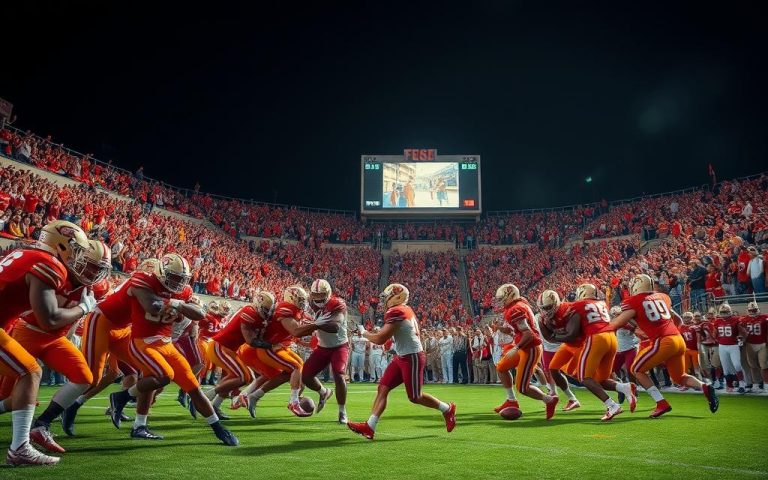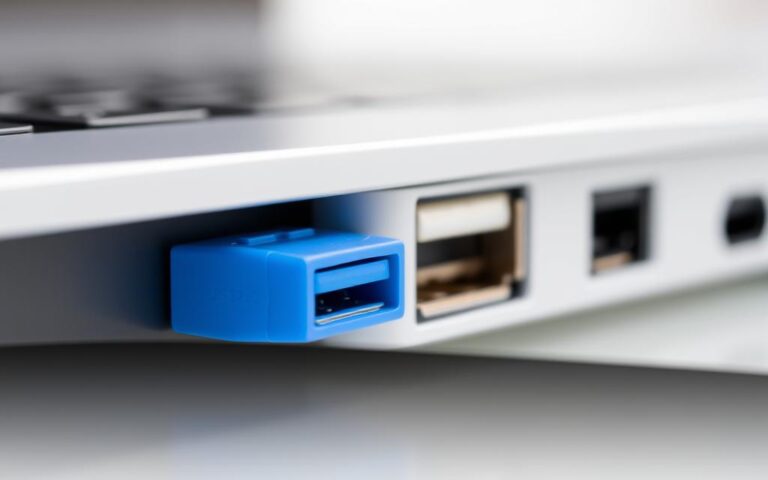PC Porting Explained: How Games Move from Console to PC
The gaming industry has experienced significant growth across various platforms, with the global gaming market diversifying into console, PC, and smartphone gaming. In 2020, the console gaming market was valued at $35.1 billion, while the PC gaming market reached approximately $37 billion. The substantial size of these markets underscores the importance of making games available across multiple platforms.
The process of adapting games from consoles to PCs, known as game porting, involves complex technical adjustments and optimisations. It requires careful consideration of hardware differences, control schemes, and performance optimisations to ensure a seamless gaming experience on PCs. Understanding this process is crucial for developers seeking to maximise their game’s potential by tapping into the vast PC gaming audience.
As the gaming industry continues to evolve, the significance of effective porting processes becomes increasingly evident. This comprehensive guide will explore the technical foundations and practical implementation strategies of game porting, providing valuable insights for both developers and gaming enthusiasts.
Understanding PC Porting in the Gaming Industry
PC porting is a crucial aspect of modern game development, enabling developers to reach a broader audience. By adapting a game for PC, developers can significantly expand their market and provide their game to players who prefer the PC gaming experience.
What Is PC Porting?
PC porting refers to the process of adapting a game originally designed for one platform, such as a console, to run on PC hardware and operating systems. This involves modifying the game’s code to be compatible with PC architecture, ensuring that the game runs smoothly and efficiently. The goal of PC porting is to provide a seamless gaming experience that is consistent with the original version, while also leveraging the unique capabilities of PC hardware.
The process of porting a game to PC requires a deep understanding of both the game’s original design and the technical requirements of the PC platform. Developers must consider factors such as hardware variability, software compatibility, and performance optimization to ensure that the game runs well across a range of PC configurations.
The Evolution of Cross-Platform Gaming
The gaming industry has witnessed significant advancements in cross-platform gaming over the past two decades. Initially, cross-platform efforts resulted in substantially different versions of games across platforms. However, modern porting aims to deliver consistent experiences regardless of the platform. The development of sophisticated game engines like Unreal Engine and Unity has revolutionized cross-platform development by providing tools specifically designed to facilitate easier porting between systems.
For more information on the differences between game remastering, remaking, rebooting, and porting, you can refer to this detailed article that explores these concepts in depth.
| Aspect | Early Cross-Platform Efforts | Modern Cross-Platform Gaming |
|---|---|---|
| Game Versions | Substantially different versions across platforms | Consistent experiences across platforms |
| Development Tools | Limited tools and manual optimization | Sophisticated game engines like Unreal Engine and Unity |
| Distribution | Physical production and distribution barriers | Digital distribution platforms removing physical barriers |
Why Developers Choose to Port Games to PC
The decision to port a game to PC is often driven by several key factors. As the gaming landscape continues to evolve, developers are recognising the vast potential of the PC market.
Expanding Market Reach and Audience
Porting a game to PC allows developers to tap into a broader audience base. The PC gaming community is vast and diverse, offering developers the opportunity to reach players who may not be active on console platforms. By making their game available on PC, developers can increase their game’s visibility and attract new players.
Increased Revenue Opportunities
PC ports can significantly boost a game’s revenue. The PC market offers various monetisation strategies, including digital distribution platforms and in-game purchases. Moreover, the ability to patch and update games easily on PC means that developers can continue to generate revenue through post-launch sales and DLC.
According to industry insights, PC games tend to have longer commercial lifespans compared to their console counterparts. This is partly due to the ease of updating and patching games on PC, as well as the active modding communities that often form around PC titles.
| Benefits of PC Porting | Description |
|---|---|
| Longer Commercial Lifespan | PC ports remain available and playable across multiple hardware generations. |
| Modding Communities | User-created content and modifications can extend a game’s relevance. |
| Easier Patching and Updating | Developers can continue to support and improve their games over time. |
Extended Game Lifespan
Porting games to PC can extend their lifespan. As game hardware and software become obsolete, older games can become inaccessible to players. By porting games to PC, developers can ensure that their titles remain playable and appreciated by future generations.
“The archival nature of PC gaming helps preserve gaming history, as PC ports often remain playable through emulation and compatibility layers even as hardware evolves.”
Remastered PC ports of older console games can introduce classic titles to new generations of players, providing nostalgic experiences for returning fans. The preservation of gaming history through PC ports is a significant benefit for both developers and players.
The Technical Foundations of PC Porting
PC porting requires a deep understanding of the technical foundations that enable a game to transition smoothly between platforms. Optimising performance for the target platform is critical to a smooth gaming experience.
Source Code Adaptation
Adapting the source code is a crucial step in the PC porting process. This involves modifying the code to accommodate the differences between the console and PC architectures. Console games are developed for fixed hardware specifications, whereas PC ports must accommodate tremendous hardware variability, requiring scalable solutions for graphics, physics, and other resource-intensive systems.
| Aspect | Console | PC |
|---|---|---|
| Hardware Specifications | Fixed | Variable |
| Memory Architecture | Unified Memory | Separate RAM and VRAM |
| Processing Priorities | Optimised for Specific Hardware | Flexible to Accommodate Various Configurations |
Platform-Specific Architecture Differences
The differences between console and PC architectures pose significant challenges during the porting process. Console games are optimised for specific hardware, whereas PC games must be adaptable to a wide range of hardware configurations. This requires developers to reimplement console-specific optimisations using standard PC technologies without compromising performance or visual fidelity.
Memory handling is a particular challenge, as consoles typically use unified memory architecture, while PCs maintain separate pools for system RAM and GPU VRAM. This necessitates different resource loading strategies to ensure optimal performance on PC.
Key Stages in the PC Porting Process
The PC porting process involves several crucial stages that ensure a game is successfully adapted for PC players. This complex process requires meticulous planning, precise code adaptation, and rigorous testing to ensure the ported game meets the expected quality and performance standards.
Planning and Analysis Phase
The initial phase of PC porting involves thorough planning and analysis. Developers assess the feasibility of porting the game to PC, identifying potential challenges and opportunities. This stage includes evaluating the target platform‘s capabilities and limitations, as well as determining the necessary resources and timeline for the porting project.
Code Adaptation and Rewriting
Once the planning phase is complete, the next step is adapting the game‘s code to be compatible with PC architecture. This involves rewriting or modifying the code to accommodate the differences between the original console version and the PC platform. The goal is to ensure that the porting game process results in a stable and efficient PC version.
Testing and Quality Assurance
Rigorous testing is essential to identifying and fixing platform-specific bugs or compatibility issues. Running the game on the target platform and gathering feedback from real users helps ensure a polished and bug-free experience. Testing and quality assurance for PC ports present unique challenges due to the vast array of possible hardware configurations, requiring systematic testing across representative system specifications.
- Automated testing tools help identify compatibility issues, performance bottlenecks, and rendering anomalies across different combinations of CPUs, GPUs, and system configurations.
- PC-specific features such as ultrawide monitor support, variable refresh rates, and keyboard/mouse input require dedicated testing protocols not necessary for console versions.
- Beta testing with real PC users provides invaluable feedback on performance across diverse hardware setups and helps identify issues that might not appear in controlled testing environments.
By following these key stages, developers can ensure that the PC version of the game is of high quality, providing an optimal gaming experience for PC players.
Adapting Game Controls and User Interface
When porting games to PC, one of the critical aspects is adapting the game controls and user interface to cater to the diverse hardware configurations and user preferences. This process involves several key considerations to ensure a seamless gaming experience.
From Controller to Keyboard and Mouse
Transitioning from a console controller to keyboard and mouse requires significant adjustments. The user interface must be optimised for the precision offered by a mouse, incorporating features like hover states for interactive elements and tooltip systems. This enhances the overall user experience, making it more intuitive and engaging.
UI Scaling and Resolution Considerations
PC displays come in various sizes and resolutions, and ensuring that the UI scales appropriately is crucial. The UI design must be adjusted to fit the target platform’s screen size, resolution, and aspect ratio. Key considerations include:
- Dynamic UI scaling systems to accommodate different resolutions and aspect ratios.
- Text legibility, particularly for UI elements designed for TV distances now being viewed on closer PC monitors.
- Redesigning HUD elements, cutscenes, and menu systems for ultrawide monitors and non-standard display configurations.
By addressing these challenges, developers can create a game that works seamlessly across various PC configurations, providing an optimal gaming experience.
Graphics Optimization for PC Gaming
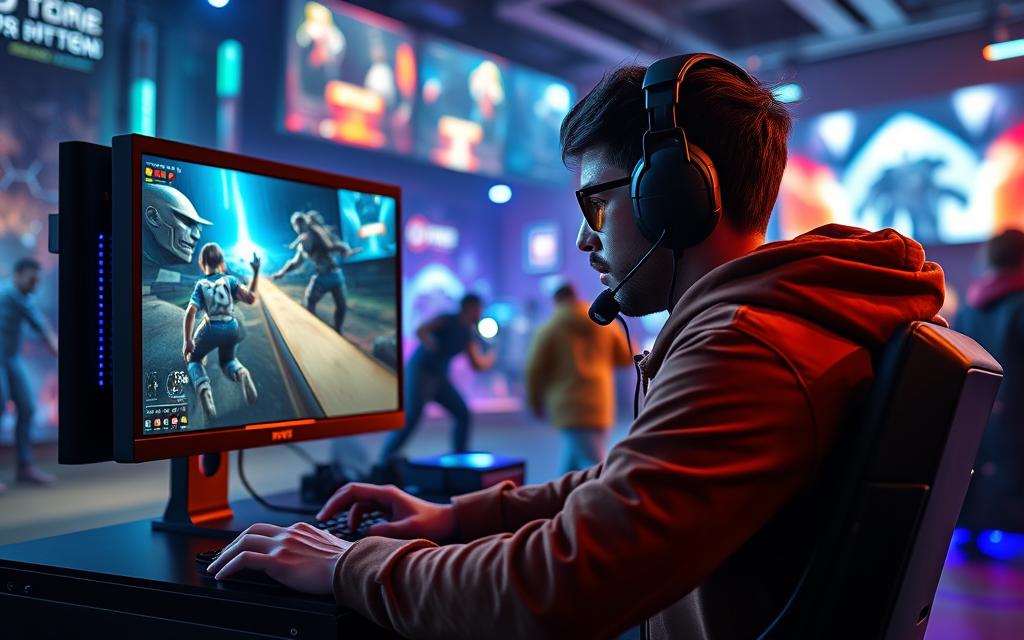
Graphics optimization is crucial for PC gaming, as it directly impacts the game’s performance and visual quality. PC gamers expect high-quality graphics, and to meet this expectation, developers must employ various optimization techniques.
Texture and Asset Enhancement
One key aspect of graphics optimization is texture and asset enhancement. This involves improving the resolution and detail of textures, models, and other graphical assets to create a more immersive gaming experience. By enhancing these elements, developers can significantly improve the game’s visual fidelity.
Supporting Multiple Display Configurations
Another important consideration is supporting multiple display configurations. PC gamers use a wide range of monitors with different resolutions, aspect ratios, and refresh rates. To cater to this diversity, developers must ensure that their game can adapt to various display settings, providing a smooth experience across different hardware configurations.
Frame Rate and Performance Tuning
Frame rate and performance tuning are also critical for a seamless gaming experience. Unlocked frame rates are a fundamental expectation for PC ports, requiring substantial reworking of timing-dependent systems. Physics systems, animation timing, and game logic often need recalibration to function correctly at variable frame rates. Implementing scalable graphics options and utilizing multi-threading optimizations can help achieve the desired performance across various hardware configurations.
By focusing on these areas, developers can significantly enhance the gaming experience on PC, providing both high-quality graphics and smooth performance.
Overcoming Common PC Porting Challenges
The process of porting games from consoles to PCs is fraught with difficulties. Console games are typically designed for fixed hardware specifications, making the transition to PC—a platform with vast hardware variability—particularly challenging.

Hardware Variability Issues
One of the primary challenges is addressing the wide range of hardware configurations found in PCs. Unlike consoles, PCs can have varying processor speeds, memory sizes, and graphics card capabilities, making it difficult to ensure a game runs smoothly across different systems. Performance balancing is crucial, requiring developers to create scalable systems that deliver consistent gameplay experiences across hardware configurations.
- Implementing effective graphics settings hierarchies allows players to make informed decisions about performance trade-offs.
- CPU optimisation is particularly challenging due to the varying core counts, clock speeds, and architectural efficiencies of PC processors.
Software Compatibility Concerns
Software compatibility is another significant concern. PC users may have different operating systems, drivers, and background applications running, which can affect game performance. Ensuring that a game is compatible with various software configurations is essential for a smooth gaming experience.
Performance Balancing Across Systems
To achieve performance balancing, developers must carefully manage resources such as CPU, GPU, and memory. This involves optimising the game for different hardware configurations and providing players with options to adjust graphics settings to suit their system’s capabilities.
- Memory management must be balanced to accommodate both low-end systems with limited RAM and high-end configurations.
- Benchmark tools integrated into PC ports help players optimise their experience and provide developers with valuable performance data.
By addressing these challenges, developers can ensure a successful port that offers a great gaming experience across a wide range of PC hardware configurations.
Tools and Middleware for Successful PC Porting

A crucial aspect of PC porting is the utilization of cutting-edge tools and middleware designed to streamline the process. These tools help bridge the gap between different platforms, saving time on repetitive tasks and ensuring that all team members work with the latest version of the game source code.
Game Engines That Facilitate Porting
Game engines such as Unity and Unreal Engine have built-in features that support cross-platform game development, making it easier to port games to PC. These engines provide a robust framework for handling multiple platforms, reducing the complexity involved in game porting.
Specialized Porting Software Solutions
Several specialized middleware solutions have emerged to address specific challenges in the PC porting process. For instance, graphics API translation layers like DXVK and VKD3D help translate console-specific rendering APIs to PC standards like DirectX and Vulkan. Additionally, performance analysis tools such as RenderDoc, PIX, and Nsight provide critical insights into rendering pipelines, helping identify optimization opportunities specific to PC hardware.
Input mapping frameworks facilitate the transition from controller-centric design to keyboard and mouse support, handling common PC gaming conventions. Automated testing solutions designed for PC compatibility help development teams validate their ports across numerous hardware configurations efficiently.
By leveraging these tools and middleware, developers can significantly reduce the time and effort required to port a game to PC, ensuring a successful transition that meets player expectations.
The Cost and Time Investment of PC Porting
PC porting is a multifaceted task that demands careful planning, execution, and budget allocation. When developers decide to port a game to PC, they must consider various factors that influence the overall cost and timeframe of the project.
Budget Considerations for Different Game Types
The budget required for PC porting varies significantly based on the type and complexity of the game. For instance, porting a small indie game to one platform can be relatively quick and inexpensive, taking around 3-4 months. However, larger and more complex games, especially those at the AAA+ level, require a substantially larger budget and a longer timeframe, often exceeding a year. The scale of work and the number of changes needed to ensure the game performs well on the new platform are critical factors in determining the budget.
Realistic Timeframes for Porting Projects
Realistic timeframes for PC porting projects can vary widely. Simple indie titles may require 3-4 months, while larger AAA productions often need 9-12 months or more. Several factors contribute to the overall timeframe, including the adaptation of core systems like rendering pipelines, input handling, and user interfaces, which typically consumes the largest portion of the development schedule. Additionally, quality assurance testing across various hardware configurations is a significant time investment, often accounting for 25-30% of the total project timeline. Simultaneous development of PC-specific enhancements can extend timeframes but often results in more commercially successful releases.
It’s also important to consider external factors such as platform certification requirements, middleware licensing, and coordination with digital distribution platforms when planning the project schedule. By understanding these elements, developers can better estimate the time and cost required for a successful PC port.
Case Studies: Successful Console to PC Ports
The world of gaming has witnessed numerous successful console to PC ports, highlighting the versatility of modern game development. The Nintendo Switch, with its unique blend of portability and functionality at an affordable price, has been a significant factor in this trend. This section will explore several case studies that demonstrate the potential of console to PC ports, including both AAA game transitions and indie success stories.
AAA Game Transitions
AAA games, known for their high production values and complex gameplay mechanics, present a unique challenge when being ported from console to PC. Successful ports in this category often involve significant optimization to ensure that the PC version runs smoothly on a variety of hardware configurations. For instance, popular titles have been successfully transitioned, offering enhanced graphics and improved performance on PC.
These transitions not only expand the game’s audience but also provide players with a potentially superior gaming experience on PC, thanks to the platform’s flexibility and upgradeability.
| Game Title | Original Platform | Ported Features |
|---|---|---|
| AAA Game Example | Console | Enhanced Graphics, Customisable Controls |
| Another AAA Title | Console | 4K Resolution, Mod Support |
Indie Success Stories
Indie games have also seen significant success with console to PC ports, often leveraging the unique strengths of each platform. Titles such as “Hades” by Supergiant Games and “Hollow Knight” by Team Cherry have demonstrated how careful optimization and thoughtful control scheme adaptation can create a seamless experience across PC and consoles.
- Stardew Valley showcased the commercial potential of well-executed ports, expanding its audience and commercial success across multiple platforms.
- Undertale proved that even games with simple technical requirements benefit from professional porting, maintaining its distinctive experience across PC and console platforms.
These indie success stories highlight how smaller teams can effectively leverage porting to extend their games’ commercial lifespans and reach new audiences without compromising their creative vision.
The Future of PC Porting Technologies
Emerging trends and technologies are revolutionising the process of porting games to PC. The flexibility of modern game engines reduces the amount of manual work required to port a game and ensures that developers can maintain consistent performance across different systems.
Emerging Tools and Techniques
The industry is shifting towards simultaneous multi-platform development, with PC versions being developed alongside console versions from the outset. Platform-agnostic rendering APIs like Vulkan are gaining traction, potentially simplifying future porting efforts by providing a consistent graphics programming interface across multiple platforms.
Cross-Platform Development Trends
Game streaming technologies and modular game design approaches are becoming increasingly popular. These trends enable developers to maintain a single version of a game that can run on server hardware and stream to various devices, or create platform-specific modules that plug into a shared core codebase. Cross-platform play and progression are also becoming expected features, requiring unified backend systems that work seamlessly across PC and console environments.
Conclusion: Maximising the Potential of PC Porting
Maximising the potential of PC porting is crucial for developers looking to breathe new life into their games. Despite the challenges and costs associated with porting, it can be a significant win for both player satisfaction and revenue.
Successful PC ports go beyond mere technical conversion, embracing the unique capabilities of the PC platform to deliver enhanced experiences. Careful planning, appropriate resource allocation, and realistic timelines are essential for navigating the complex technical challenges inherent in adapting console games to the diverse PC ecosystem.
As cross-platform development tools continue to evolve, the barriers between gaming platforms are gradually diminishing. The future of PC porting lies in creating seamless experiences that maintain a game’s core identity while leveraging the platform’s strengths. At iLogos, we understand the excitement of building foundations for a title’s new life and helping game studios find new audiences to connect with.
In summary, PC porting represents a significant opportunity for developers to extend their games’ commercial lifespans, reach new audiences, and maximise return on their development investments. By understanding the intricacies of PC porting and leveraging the right tools and expertise, developers can unlock new potential for their games.
FAQ
What is the process of adapting a game for different platforms?
The process involves modifying the game’s source code to ensure compatibility with the target platform’s architecture, controls, and hardware.
How do developers handle differences in hardware and software between consoles and PCs?
Developers must consider the variability in hardware and software when porting a game to PC, ensuring the game runs smoothly across different configurations.
What are the key considerations for adapting game controls for PC players?
The primary concern is transitioning from controller-based inputs to keyboard and mouse controls, providing an optimal gaming experience.
What is the role of game engines in facilitating the porting process?
Game engines like Unity or Unreal Engine provide tools and frameworks that simplify the process of adapting a game for multiple platforms.
How do developers ensure the game’s performance remains consistent across different PC configurations?
Developers test the game on various hardware setups to identify and address potential performance issues, ensuring a smooth gaming experience.
What are the benefits of porting games to PC?
Porting games to PC expands the game’s market reach, increases revenue opportunities, and extends the game’s lifespan.
How do developers address software compatibility concerns when porting a game to PC?
Developers must ensure the game is compatible with various operating systems and software configurations to minimise compatibility issues.
What is the significance of graphics optimisation for PC gaming?
Graphics optimisation is crucial for ensuring the game runs smoothly on different PC configurations, providing an enhanced gaming experience.

